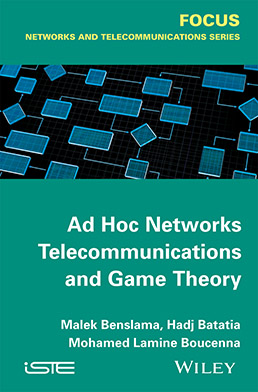
Since its first application to wireless and ad hoc networks dates in 1995, game theory has proved its abilities to direct networks towards a better state of equilibrium. This has led the authors of this book to propose a model based on game theory to analyze both the SALOHA and CSMA protocols, involving the random use of the redundancy of an erasure coder to reduce collision and improve network performance in terms of output and transmission time – something that is completely new to the literature.
To this end, the authors have defined with precision the essential components of their model, by describing the role of each component in the real case. The study and analysis of the model is the most interesting phase, it is a question of formalizing the game to see whether or not it converges. Throughout the book, the authors show that their game converges towards a pure, single solution which represents the game equilibrium of their system.
The results obtained on simulations have confirmed that at equilibrium the network becomes more stable and more efficient with a very advantageous optimality in terms of loss rates of packets and transmission flow.
1. Ad Hoc Networks: Study and Discussion of Performance.
2. Game Theory and Communication Networks.
3. Games in SALOHA Networks.
4. Games in CSMA Networks.
Malek Benslama is Professor at the University of Constantine 1 in Algeria. He is a member of the scientific and technical advisory council for the Algerian Space Agency. His research centers on the field of space and communication networks.
Hadj Batatia works at IRIT ENSEEIHT in Toulouse, France.
Mohamed Lamine Boucenna works at the University of Constantine 1 in Algeria.